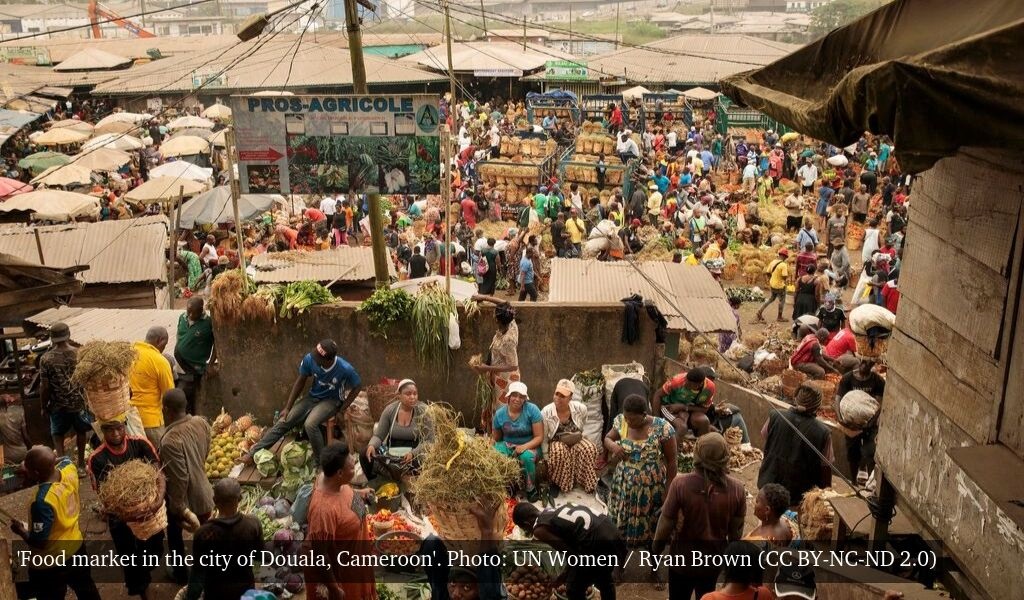Over the coming decades, food systems will change dramatically, driven by changing demographics, climate change, resource scarcity, changing food markets, urbanisation, and technological innovation. These changes are placing increasing stress on current food systems, forcing major transformations within these systems that will create both systemic risks and transformational opportunities, as the K4D Learning Journey on Changing Food Systems has shown.

Take for example the growing demand for (processed) food due to urbanisation and population growth (Africa will see the highest population rise – estimated to double from 1.3 billion in 2017 to 2.5 billion in 2050 according to the UN), which presents significant opportunities for inclusive economic development and jobs. However, unhealthy diets and environmental impacts pose systemic risks for health, human security, and stability. A shift to nutritious diets is not only good for our health, it also helps significantly reduce food system associated greenhouse gas emissions and hence contribute positively to climate change mitigation, as shown by the EAT-Lancet report (2019) and the Global Panel on Agriculture and Food Systems for Nutrition (2016) foresight report.
Learning journeys are facilitated learning activities provided by K4D for the the UK Department for International Development (DFID). They explore and respond to complex, interdisciplinary development issues of strategic importance to policy, programming and organisational learning. Generating a better understanding of how to realise food systems’ opportunities and mitigate the risks were the main objectives of this particular Learning Journey. The Learning Journey has been finalised with the recent publication of a policy brief on the implications of changing food systems for DFID and other development agencies’ policy and programmes. As stated in the policy brief:
“development priorities such as health, jobs, food security, poverty alleviation, gender equality, and responding to climate change all require transforming food systems to be healthier, more inclusive, and sustainable”.
Food systems and the Sustainable Development Goals
Food systems impact on and are impacted by virtually every Sustainable Development Goal (e.g. eradicating hunger, malnutrition and poverty, creating employment, protecting the environment, resilience against climate change, and partnerships for sustainable and inclusive development). Therefore, understanding long term negative trends and/or sudden shocks to the food system is critical for development strategy and for embedding mechanisms that can improve resilience at all levels, with a focus on poor and vulnerable people. However, as the policy brief concludes:
“key indicators for food system outcomes – inclusive growth, human health, and environmental impact – are heading in the wrong direction (e.g. malnutrition, climate change, low-paid work), creating systemic risks that threaten development progress, peace, and security”.
Key themes
The Learning Journey highlighted three themes, on which several activities were based, including a rapid literature review for each: urban food systems and nutrition, food systems in regions of protracted crises, and job opportunities in the food economy. Additionally, a critical cross-cutting theme was the impact of climate change on food systems’ transformation and vice versa. The Learning Journey brought together external experts and DFID staff across thematic cadres, mapping and analysing the trends and evidence while exploring the longer-term implications of changing food systems for DFID’s development goals.
Optimising food systems
The Learning Journey identified three interrelated outcomes to optimise food systems:
- Economic and social wellbeing: Food systems are a major source of jobs in developing countries and a big part of the economy (formal and informal). At the same time, food is a big expenditure for poor families, making food prices critical to wellbeing.
- Food and nutrition security: Enabling healthy, safe, nutritious, and affordable diets for all requires getting both the demand and supply side of the food equation right.
- Environmental sustainability: There is a clear need to make food system outcomes less damaging to the environment, focusing on its potential contribution to mitigating climate change and restoring biodiversity.
To analyse these outcomes, a scoping framework for changing food systems was created, whereby food system outcomes are analysed in different contexts. For each outcome key data and trends should be assessed along with any potential systemic risks and transformational opportunities. Critically, the issues of gender, resilience and exploitation (modern slavery) should also be brought into the analysis. The different contexts identified include:
- Areas of protracted crises and conflict;
- Areas of rural poverty with limited market opportunity due to marginal natural resources and/or poor infrastructure;
- Areas of rural poverty where there is market potential, but poor households lack the assets to access them;
- Areas of urban poverty; and
- Areas of commercial and export-oriented agriculture and food supply.
As the policy brief states:
“These contexts are shaped by the degree of conflict, effectiveness of government, levels of poverty, climatic conditions, natural resources, levels of infrastructure, access to services, and access to markets. Very different interventions and policy directions are needed to optimise the food system outcomes in each specific context.”
Through such analysis development agencies like DFID could see the implications of these trends, risks and opportunities on their current and future programmes. A food system approach therefore is very different to the siloed approaches that have often characterised development interventions (e.g. on health, nutrition, agriculture, private sector), as shown during the Learning Journey.
Further ways in which DFID and other development agencies can integrate food systems thinking in policy and programming have been summarised in the policy brief.
